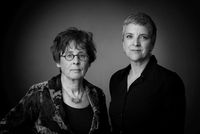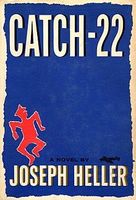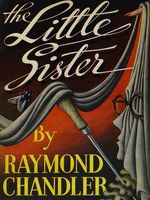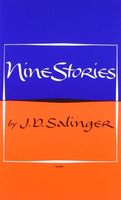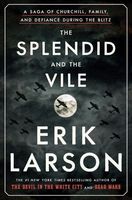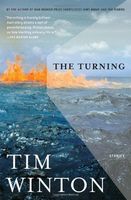Robert Rotenberg on His Family's Lost Story of Heroism, A Memorable Opening Line, & Going Back to Chandler
Bestselling crime writer Robert Rotenberg, who is also a prominent criminal lawyer, knows how to craft a good story. But he got a serious surprise when two distant relatives wrote a story he'd never heard before: that of their grandfather, a distant relation of Rotenberg's, whose remarkable life story had been lost to the past.
Indeed, what the cousins, Hella Rottenberg and Sandra Rottenberg, had uncovered about their grandfather Isay Rottenberg was no less than the story of a hero: a man who stood up to the Nazis and did everything he could to protect hundreds of workers in the terrifying years leading up to World War Two, when he challenged the Nazis closing his cigar factory in Dresden. He survived imprisonment and intimidation but his story was lost even to his family until a call for claims of property stolen by the Nazis brought the factory's fate back to the family's attention.
Translated from the Dutch by Jonathan Reeder, Hella and Sandra Rottenberg's The Cigar Factory of Isay Rottenberg: The Hidden History of a Jewish Entrepreneur in Nazi Germany (Wilfrid Laurier University Press) has been called "a story of redemption, courage, and honour that leaves one shuddering in awe" (Wade Davis).
For Robert Rotenberg, the English edition meant the chance to contribute to his family's remarkable take, providing an afterword that adds additional context and interest, especially for North American readers. We're excited to celebrate this powerful book today by inviting Robert to share some of his most influential and beloved reading experiences, as part of our WAR: Writers as Readers series.
Writers as Readers, with Robert Rotenberg
The first book I remember reading on my own:
I come from a family of readers. My mother had four sons, and when I was in high school I remember she bought me a bolster (I see they are coming back in style) so I could sit in bed and read. I have two older brothers so I would always try to read their books. The first book I remember reading cover to cover, then turning to the first page and reading it again was Catch 22. Funny, I teach writing courses and put a huge amount of emphasis on what I call “First word, first sentence, first paragraph.” (See Tim Winton below). All these years later I still remember Joseph Heller’s first line: “It was love at first sight.”
P. S. I also remember the first book I didn’t read past about 30 pages. My poor mother always wanted a girl. She gave me Gone with the Wind to read but, much to her disappointment, I couldn’t get beyond Scarlett worrying about what dress to wear to the ball.
I’ve read the whole series of Andrea Camilleri’s charming and often moving detective novels, set in Sicily. (I just counted there are 28 of them). I’ve also seen all the hugely popular (in Europe) Montalbano TV shows (if like me you are tired of Netflixs, get MHz Choice and watch shows from all over the world.)
Even though I tell my writing students, don’t start your books with your main character waking up in bed, in every book Montalbano wakes up in his sea-side home naked, horny and angry. Camilleri – who recently passed away at 91, and here’s some great inspiration – only started writing the series in his sixties – always makes me laugh out loud.
The book I have re-read many times:
I made it through law school by reading all of Raymond Chandler’s books. There are only seven Raymond Chandler novels – and a few short stories. I go back to them often, sometimes just for the similes. No one wrote them better. Here’s a few lines from the book recently re-read, The Little Sister.
"…The orange queen stopped typing. The room fell silent like a fallen cake. I went out, parting the silence as if I was pushing my way through water."
Your CanLit News
Subscribe to Open Book’s newsletter to get local book events, literary content, writing tips, and more in your inbox
A while ago I re-read A Day in the Life of Ivan Denisovich. I found it packed an even more powerful punch. I also love last paragraphs and last lines in novels, and Solzhenitsyn’s is perhaps the best.
"The end of an unclouded day. Almost a happy one. Just one of the 3,653 days of his sentence from bell to bell. The extra three were for leap years."
A book I feel like I should have read, but haven't:
How long is a piece of string? I like to say I was well read until I graduated from university and it’s been downhill since then. Much too long a list. (See The Age of Innocence below.)
The book I would give my seventeen-year-old self, if I could:
A Suitable Boy, by Vikram Seth. The novel has everything and more.
A book I feel strongly influenced me as a writer and why:
Nine Short Stories, by J.D. Salinger. It is his economy of words, especially in two underrated stories “Down at the Dinghy,” and “The Laughing Man,” that really captivated me. Built on my high school interest in Hemingway and Fitzgerald. And then, lucky me, as I was working on my first novel I took the Humber College Summer Writing course and my instructor was David Bezmogis. His Natasha and Other Stories is a treasure in the same tradition of spare yet rich writing. A treasure.
The best book I read in the past six months:
Researching my new novel, part of which is set in Italy during and after World War II, I’ve recently been reading a number of books about what was really happening to individuals before, during, and after the war. I think of this as the new stage of historiography, a deeper look into daily life. Some include: The People on the Beach, X Troop, The Brigade, The Splendor and the Vile, The S.S. Officer’s Armchair, The Day of Battle, Poland 1939, and Five Days in London.
And, to put in a plug, The Cigar Factory of Isay Rottenberg, the bestselling Dutch book that has now been translated into English – and for which I have had the privilege to write the afterword – about my distant Dutch Jewish cousin who opened a cigar factory in Germany in 1932 and his two writer granddaughters who unearthed his remarkable story.
The book I plan on reading next:
I just started The Age of Innocence. Time to read some of the many classics I’ve missed. (See above “Books I should have read.)
My go-to recommendation when someone asks for something great to read:
I often still go back to Love in the Time of Cholera.
A book I loved that I think has been overlooked:
The Australian writer Tim Winton’s The Turning is one of the most compelling books I’ve ever read. His short story “Small Mercies” has the best opening paragraph (see above) I’ve ever read. I’ll only give you the first line…you’ll have to find the story and read the rest.
“Peter Dyson came home one day to find his wife dead in the garage.”
A possible title for my autobiography:
Wait, I need to cut out a few more words.
______________________________________________________________
Robert Rotenberg is a Canadian criminal defence lawyer and writer, based in Toronto. He is the author of several bestselling novels, including Old City Hall, The Guilty Plea, Stray Bullets, Stranglehold, and Heart of the City. His most recent book is Downfall (2021).

